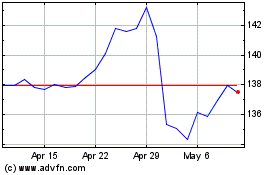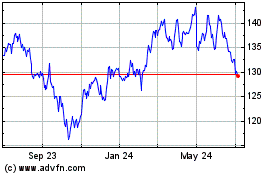
|
Vote FOR Proposal #4 to request a report on
how
the Company is addressing deforestation
in its supply chain (NYSE: YUM)
Meeting Date: May 14, 2020
|
To YUM! Brands Shareholders:
SumOfUs urges you to vote FOR PROPOSAL #4 to urge the Company
report on how the Company is curtailing the impact on the Earth’s climate caused by deforestation in YUM’s supply chain.
This notice of exempt solicitation is being provided on a voluntary
basis.
|
Proposal
Resolved, Shareholders request that Yum’ Brands.
Inc. (YUM) issue annual reports to investors, at reasonable expense and excluding proprietary information, on how the company
is curtailing the impact on the Earth’s climate caused by deforestation in YUM’s supply chain. The reports should
include quantitative metrics on supply chain impacts on deforestation and progress on goals for reducing such impacts.
|
The commodities supply chain is a major driver
of deforestation
YUM utilizes beef, soy, palm oil, and pulp/paper in its business.
These commodities are the leading drivers of deforestation globally. YUM’s limited action addressing deforestation sets the
company behind its peers and exposes the company to significant business and market risks, including supply chain disruption, damage
to the company’s reputation, physical risks to the Company’s supply chain, and failure to meet shifting consumer and
market expectations.
According to the CDP, “The protection of the world’s
forests plays a critical role in the fight against climate change, now a global priority after the forging of the Paris Agreement
on climate change committing the world’s governments to drastically cut their emissions. Forests absorb around a third of
human-caused CO2 emissions, and their destruction itself accounts for 10-15% of global greenhouse gas emissions.”1
Deforestation contributes to climate change, biodiversity loss, soil erosion, disrupted rainfall patterns, community land conflicts
and forced labor.
A major driver of deforestation across the globe is corporate supply
chains. According to a report from the Union of Concerned Scientists, “Just four commodities—beef, soy, palm oil, and
wood products—drive the majority of tropical deforestation. Together, they have an outsized impact on the health of
our world’s forests and climate, annually contributing 3.83 million hectares of deforestation, an area about the
size of Switzerland.”2 As a
major user of these commodities and as a company that depends on a positive image among its customers, it is imperative for YUM
to have robust disclosure and mitigation strategies in its supply chain management.
_____________________________
1
https://www.cdp.net/en/articles/supply-chain/deforestation-a-business-critical-issue-for-the-worlds-biggest-buyers
2
https://www.ucsusa.org/resources/whats-driving-deforestation
Consumer pressure
Deforestation has attracted significant attention from civil society,
business and governments. Due to their position in the value chain, consumer goods companies face unique risks and opportunities
resulting from their proximity to the consumer. From a risk perspective, they are highly exposed to changes in consumer preferences
and reputational risks compared to upstream industrials. Consumers can punish companies that they believe are engaged in destructive
activities. In July 2019, the EU Commission issued an official Communication announcing that it would be taking action to address
deforestation. New regulations could be coming soon.
YUM recognizes the risks from deforestation
in its supply chain
The Company is to be commended for its efforts to address deforestation.
First, it has participated in the CDP Forests survey for the last three years. (It also participates in the Climate and Water surveys.)
In the most recent 2019 report, YUM reports on two of the four key commodities as being particularly important to its business,
and it makes some commitments with regard to them.
The Company’s efforts to reduce deforestation are reflected
in its Supplier Code of Conduct, its Paper-based Packaging sourcing Policy, and its Global Forest Stewardship Policy. YUM makes
commitments on two of the four key commodities in its supply chain.
|
|
●
|
On palm oil, the company committed to source 100% of palm oil used for cooking from responsible and sustainable sources by
the end of 2018. The Company says that as of 2018, 96% of their cooking oil volume was not palm oil or was sustainable palm oil.
|
|
|
●
|
On wood fiber, the Company committed to purchase 100% of their paper-based packaging with fiber from responsibly managed forests
and recycled sources by the end of 2020. The Company says that as of 2018, markets reported an estimated total of 70% of fiber
came from certified forests or recycled sources.
|
|
|
●
|
On beef and soy, the Company signed on to the New York Declaration on Forests (NYDF), which established commitments to end
natural forest loss by 2030 and eliminate deforestation from the supply chains of major agriculture commodities by 2020.
|
Going forward, the Company is working with the World Wildlife Fund
to conduct a Supply Chain Sustainability Risk Assessment which includes soy products (including animal feed) which will inform
its future sourcing strategy and reporting.
The company’s disclosures are incomplete
The Company has made the important commitments to stopping deforestation
described above, but they are not supported by robust disclosure documenting progress towards those goals. A report from Supply
Change notes a disconnect between commitments and disclosure by many companies. The report says, “High visibility among many
of the companies with multi-stakeholder memberships and the risk of being tarnished by external assessments can motivate companies
to demonstrate ambition and action toward addressing deforestation. Demonstrating ambition was a precursor for companies to go
further and implement on-the-ground action, but many of the companies that made pledges to address deforestation (via multi-stakeholder
memberships or commitments) had not taken this extra step.”3
YUM’s lack of transparency and deficient disclosures are noted
by several key independent organizations.
|
|
●
|
The SCRIPT Soft Commodity Risk Platform report gives YUM a score of 35 out of 100 noting deficiencies in risk awareness, board
oversight, overarching policies addressing deforestation risk, traceability, and timebound targets. The assessment offers 21 recommendations.4
|
|
|
|
|
|
|
●
|
The Forest 500 ranking gives YUM a score of 39%, or 2 out of 5, with particular weakness in reporting and implementation.5
|
|
|
|
|
|
|
●
|
CDP’s 2019 Consumer Deforestation Report ‘No Wood for the Trees’, ranks YUM 17th of 22 companies.6
|
YUM’s response to the 2019 Forest Questionnaire reveals that
it has serious challenges with traceability. For timber, they report that only 35% is traceable to the mill, and for palm oil,
while 90% is traceable to the plantation, this is based on a survey of franchisees. There is no information on how the company
assures that these responses are reliable. The corporate CSR report reflects none of the limitations or challenges around this
data, creating a false impression of the progress towards the goal.
It appears that the primary tool for measuring progress towards
goals is a survey of YUM’s 45,000 franchises. But it is unclear how this information is verified. Franchisees may have an
incentive to give the corporate office the answer they want to hear. The CDP survey response indicates that the company does some
verification through audits, but it is silent on the process and extent of the verification. The Company does not explain how suppliers
are selected for audit, what percentage of suppliers are audited, what percentage are found to be out of compliance, or what the
ramifications are.
Enforcement of policies is critical to actually reducing deforestation,
yet the Supplier Code of Conduct is very vague on what happens if a supplier is out of compliance.7
Guidance on best
_____________________________
3
https://www.forest-trends.org/publications/commitments-in-action-corporate-tells-for-financing-forest-conservation-restoration-2020/
4
https://www.script.finance/tool/portfolio-risk/companies/973#
5
https://forest500.org/rankings/companies/yum-brands-inc
6
https://www.cdp.net/en/investor/sector-research/consumer-goods-report-2019
7
“Violations of, nor noncooperation with Yum in its enforcement of, the Code may lead to disciplinary action,
which may include, among other things, corrective action or termination of the Supplier relationship.” https://investors.yum.com/files/doc_downloads/irw/doc_governance/Supplier_Code_of_Conduct.pdf
practice for such policies is available8,
but the Company has not incorporated them yet. The Company does relate that one supplier was terminated for non-compliance, but
this anecdotal evidence does nothing to elucidate the standard for termination, the process, or alternative disciplinary measures.
In summary, there are gaping holes in YUM’s disclosures in
the following areas:
|
|
●
|
Company states that only 2% of meat is sourced from sensitive areas, but how this is determined and monitored is not explained.
|
|
|
|
|
|
|
●
|
The data on palm oil covers only oil used for cooking, not oil in its sourced products. Basis for this exclusion is not explained.
|
|
|
|
|
|
|
●
|
There are no milestones towards the benchmarks.
|
|
|
|
|
|
|
●
|
There is only partial disclosure of monitoring, auditing, and enforcement.
|
|
|
|
|
|
|
●
|
There appears to be no monitoring and verification process regarding indirect suppliers.
|
|
|
|
|
|
|
●
|
Company does not report the percent of suppliers that are out of compliance with the policy.
|
|
|
|
|
|
|
●
|
There is no disclosure of traceability mechanisms. For instance, mill lists are not disclosed.
Further, there is no explanation of how the Company is addressing the limited traceability of pulp and paper suppliers.
|
|
|
|
|
|
|
●
|
There is no information on how the Company’s endorsement of the New York Declaration on Forests
has been incorporated into its policies and practices.
|
|
|
|
|
|
|
●
|
Beyond stating that oversight for environmental, social and governance issues ultimately resides with the Board of Directors,
no explanation is provided regarding the oversight process and the frequency of the board review.
|
YUM! trails other companies
Other companies in the food industry such as McDonald’s, Unilever,
Nestle Kellogg’s, Mars and PepsiCo are producing superior disclosures. The Company should study the policies and practices
of these companies and adopt best practices.
Conclusion
YUM! is taking a “trust us” approach to transparency.
This is not sufficient for investors to assess the Company’s exposure to operational, supply chain, and reputational risk.
The company clearly shows that it is aware of the risks of deforestation in it supply chain and has demonstrated aspirations to
address the risks. But its disclosure is limited and open to accusations of “greenwashing.” We urge you to vote FOR
Item #4, our shareholder proposal requesting annual reports on deforestation including quantitative metrics on supply chain impacts,
goals for reducing these impacts, and metrics demonstrating progress.
_____________________________
8 https://engagethechain.org/resources/investor-primer-non-compliance-protocols-ending-deforestation-source
Sincerely,
Tim Brennan
SumOfUs
This is not a solicitation of authority to vote your proxy. Please
DO NOT send us your proxy card; SumOfUs is not able to vote your proxies, nor does this communication contemplate such an event.
SumOfUs urges shareholders to vote for Item 4 following the instructions provided on management’s proxy mailing.
Yum Brands (NYSE:YUM)
Historical Stock Chart
From Mar 2024 to Apr 2024

Yum Brands (NYSE:YUM)
Historical Stock Chart
From Apr 2023 to Apr 2024
